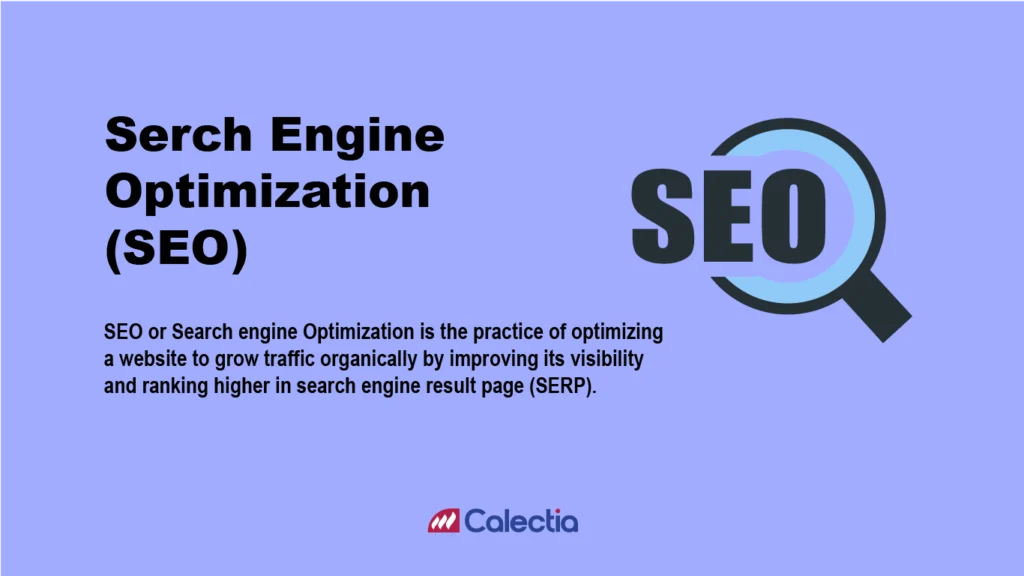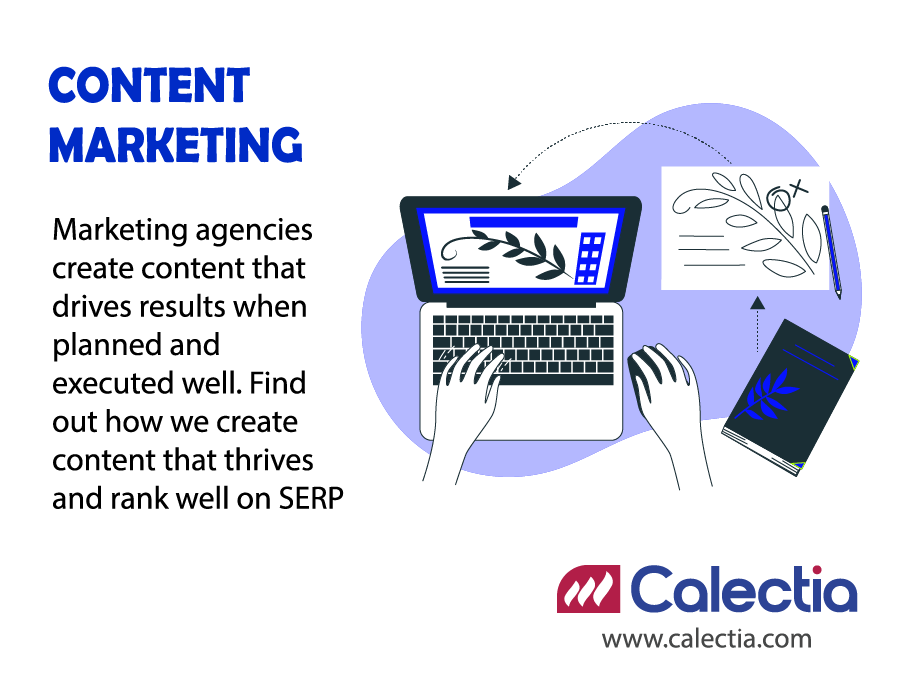
Before we dive deeper into SEO in digital marketing, it’s essential to understand what a search engine is and why SEO is crucial for both search engines and your business.
What is a search engine?
A search engine is a type of computer program or website designed to help users quickly find information on the internet by allowing them to input keywords or phrases into a search bar, returning a list of relevant webpages, images, videos, or other online resources.
It functions by continuously gathering and organizing website content across the web, using algorithms that match user queries to the most relevant content or webpage it has on its database. Examples of search engines include Google, Bing, and Yahoo.
Think of a search engine as a librarian in a massive, constantly growing library. When you tell the librarian (input keywords) what you’re looking for, they quickly scan through a carefully organized catalog (database) to point you toward the most relevant books, articles, images, or videos.
Google alone processes billions of searches daily, holding over 91% of the global search market. Clearly, understanding and utilizing search engines effectively is crucial for any online presence.
Optimizing your website for search engines isn’t just a technical task—it’s a strategic business move. Good SEO significantly increases your website’s visibility, attracts more visitors, and boosts revenue.
Heads Up
This introductory guide is perfect for young professionals, small business owners, aspiring marketers, and anyone who wants a clearer understanding of SEO basics. Whether you’re looking to leverage SEO to improve your business’s online presence or considering SEO as a career path, this guide provides foundational knowledge tailored specifically for beginners.
What Exactly is SEO?
SEO (search engine optimization) is the practice of optimizing your website to increase organic traffic. Simply put, it involves making specific improvements to your website to help it rank higher in search engine results pages (SERPs).
The better optimized your site is, the more likely it is to appear at the top of search results when people search for relevant terms or keywords.
SEO is about understanding what your audience searches for online, the answers they seek, and creating content that clearly addresses these queries. It also involves technical aspects like website structure, speed, and mobile friendliness, all designed to enhance user experience and satisfy search engine criteria.
Imagine you’re visiting a new city and craving coffee. You pull out your phone and type “best coffee shops near me.” The search engine instantly provides a list of nearby cafés, complete with ratings, reviews, and directions. Those results aren’t random—they’re carefully curated through SEO.
Local coffee shops optimized their websites through SEO with relevant keywords, accurate location information, and engaging content. That’s why they showed up prominently in your search. Without proper SEO, even the best coffee shop in town might go unnoticed online.
Goals of SEO
SEO isn’t about tricking search engines. It’s about creating a seamless user experience by matching content to user intent. Here’s what good SEO aims to accomplish:
To Increase Online Visibility and Traffic:
Higher rankings in search results mean more people will find and visit your website. However, while higher-ranked results get more clicks, they are not necessarily more trusted. As a Cornell study found,
higher-ranked results are clicked more often, they are not more trusted, and misinformation does not damage trust in accurate results that appear on the same page.
This highlights the importance of not just ranking high, but also ensuring your content is accurate and valuable for your audience.
Enhancing user experience:
Websites optimized for SEO load faster, are easy to navigate, and contain useful content. This makes users more likely to stay, engage, and return.
Boosting Credibility and Trust:
People trust search engines, but trust is built on the quality of information, not just its ranking. Sites appearing on page one of results are often viewed as more reliable, but as research suggests, users critically evaluate content rather than blindly trusting rankings. Ensuring accuracy and authority in your content is key to long-term credibility.
By focusing on these goals, SEO helps create a search-friendly and user-centric web experience.
In summary, SEO helps search engines understand your website content, leading to increased visibility and more organic visitors. Effective SEO can significantly impact your business success by bringing more qualified leads to your website without the need for paid advertising.
